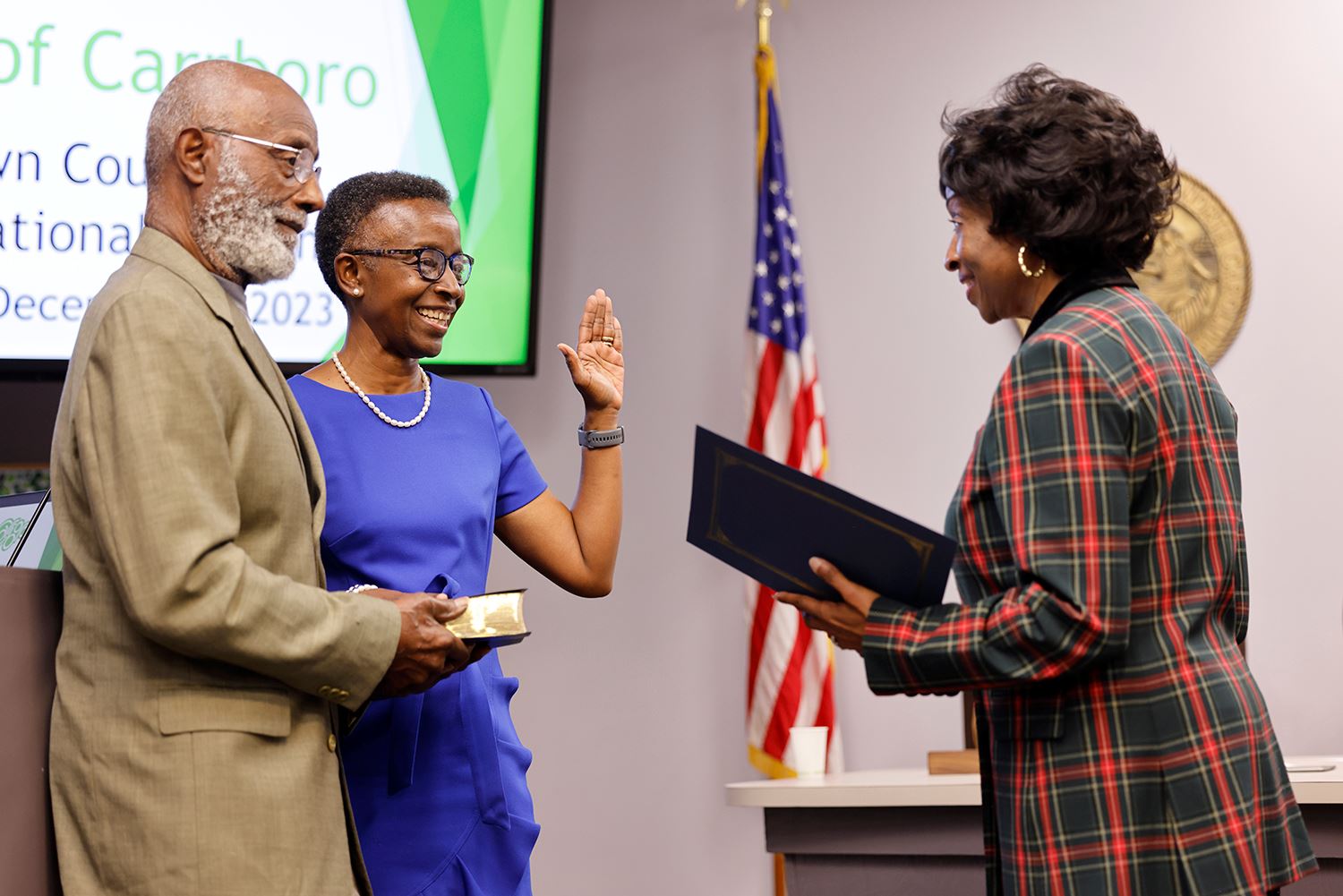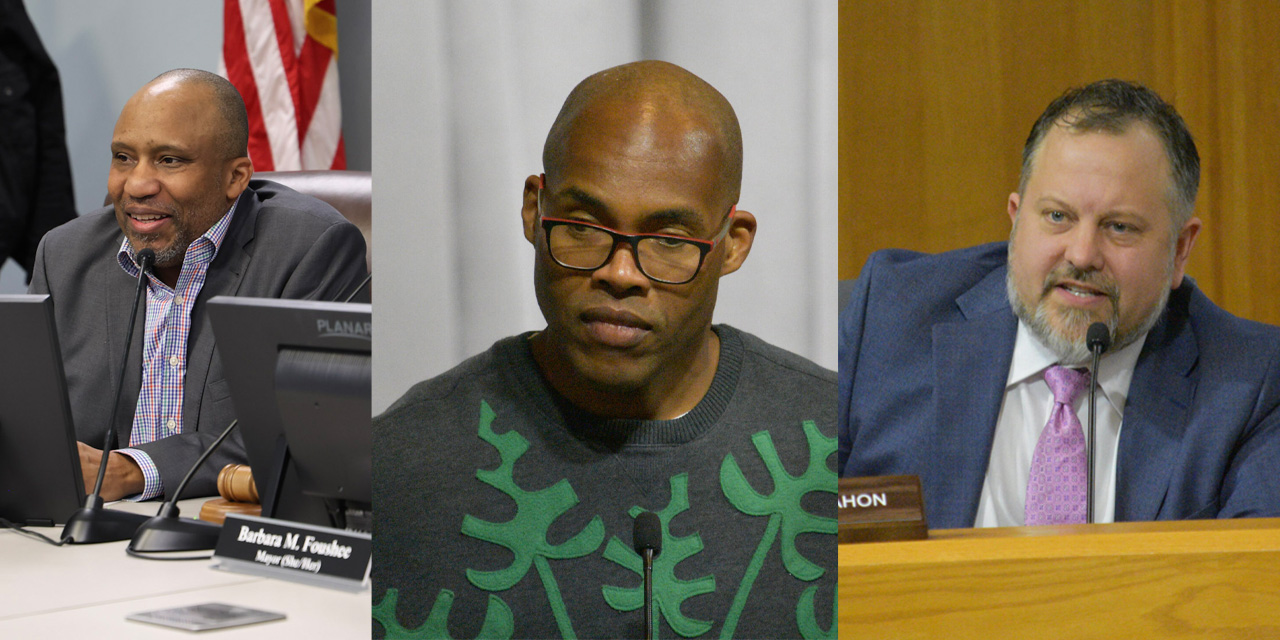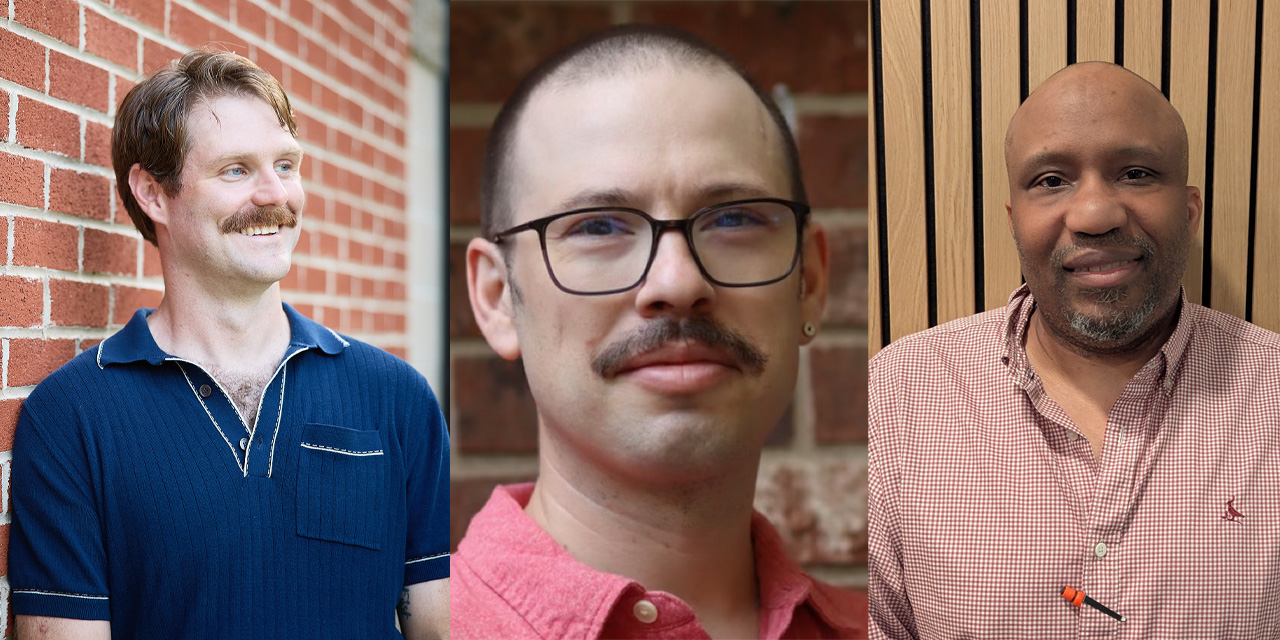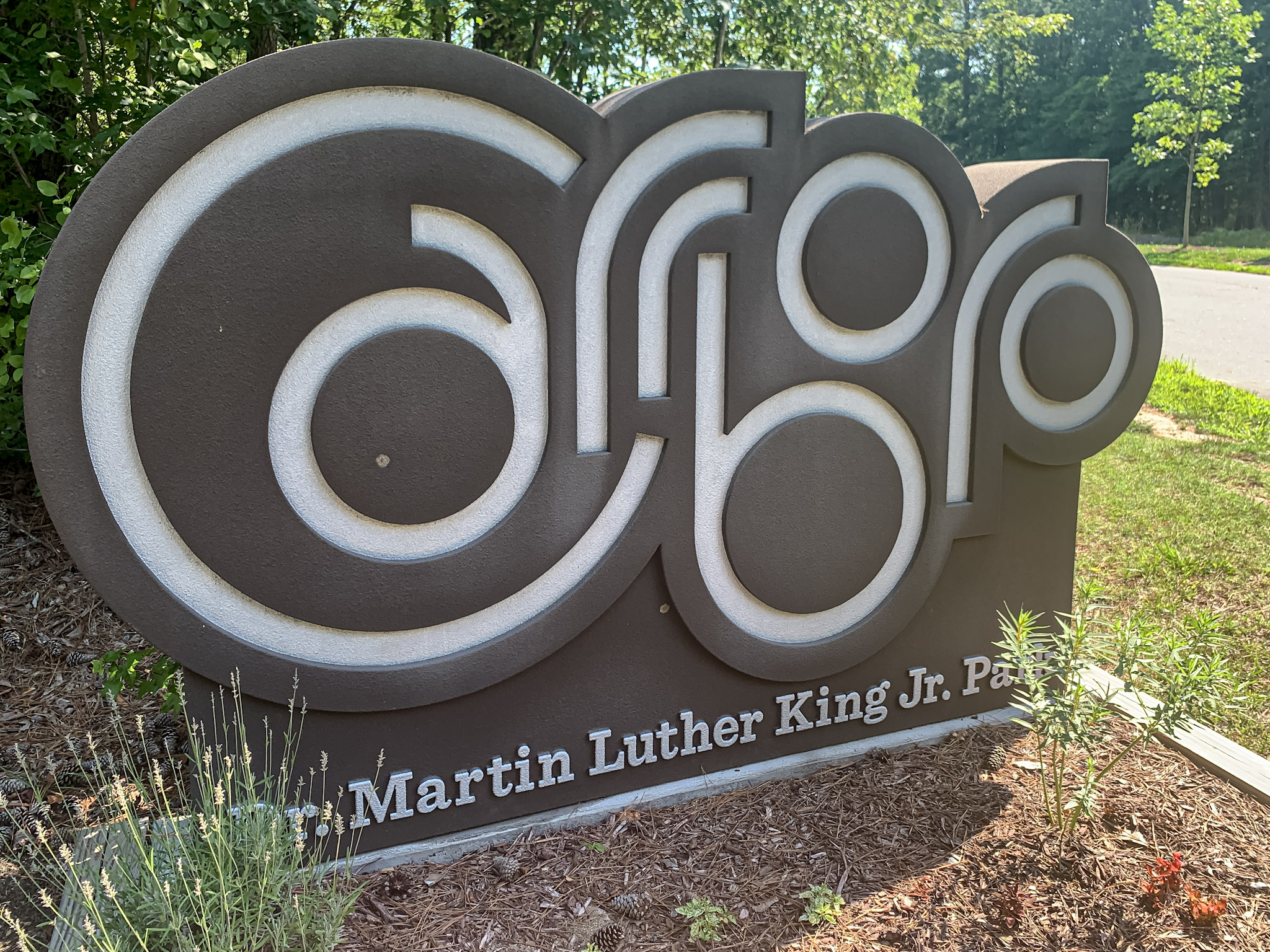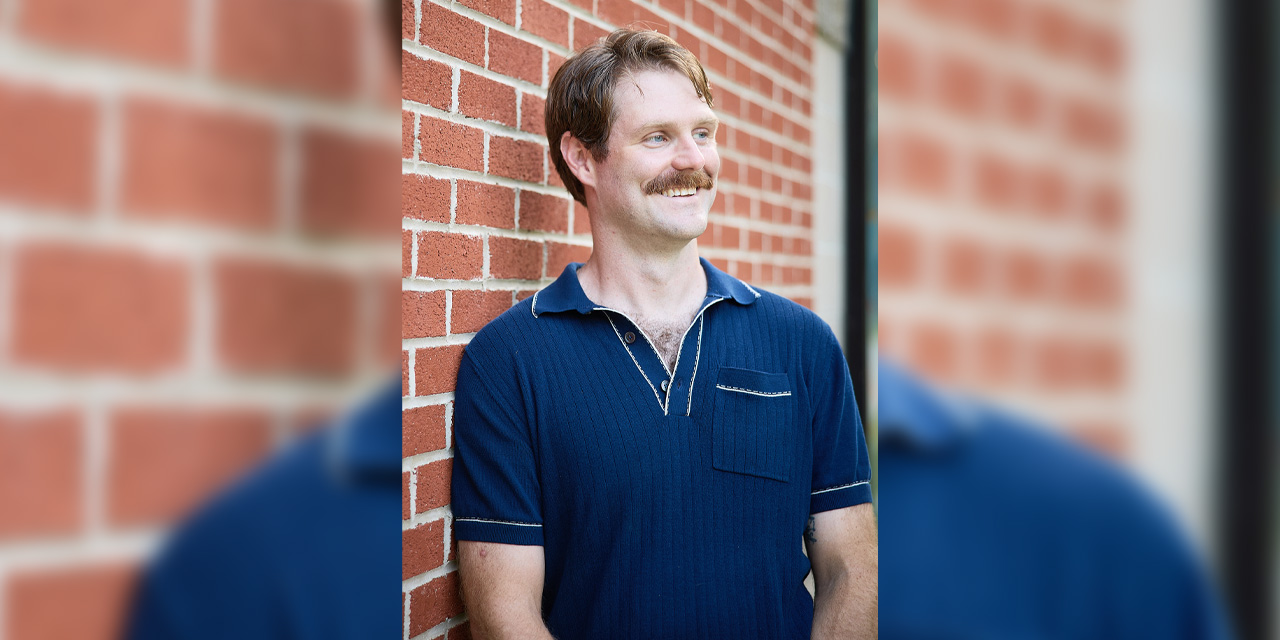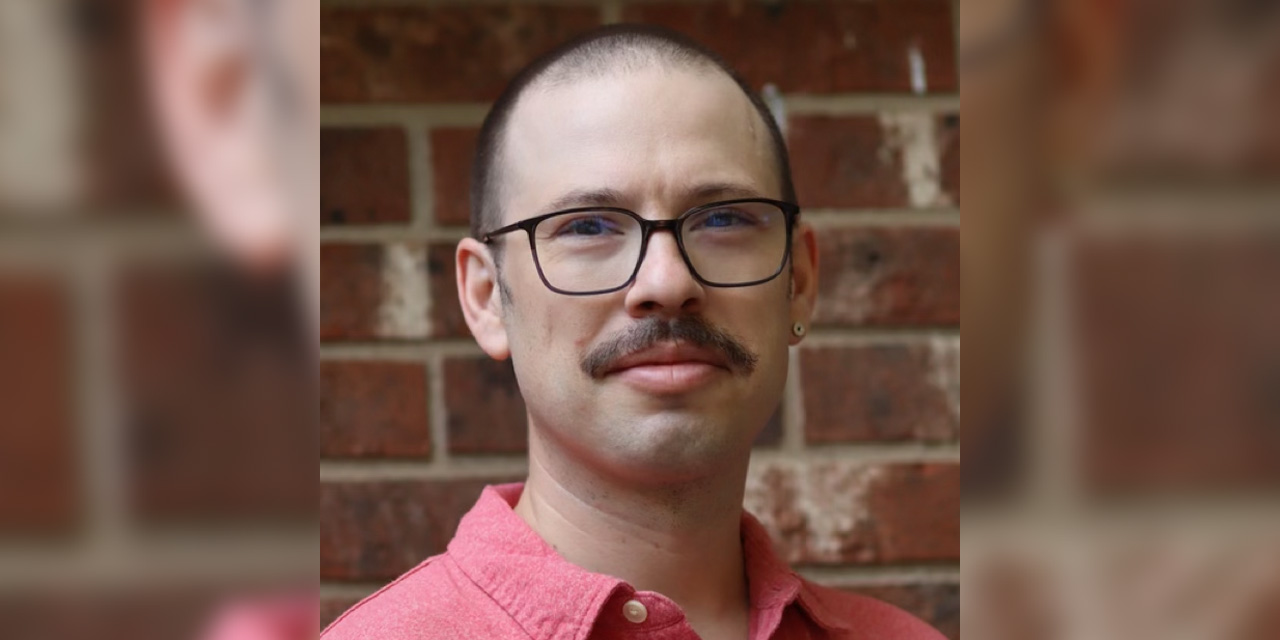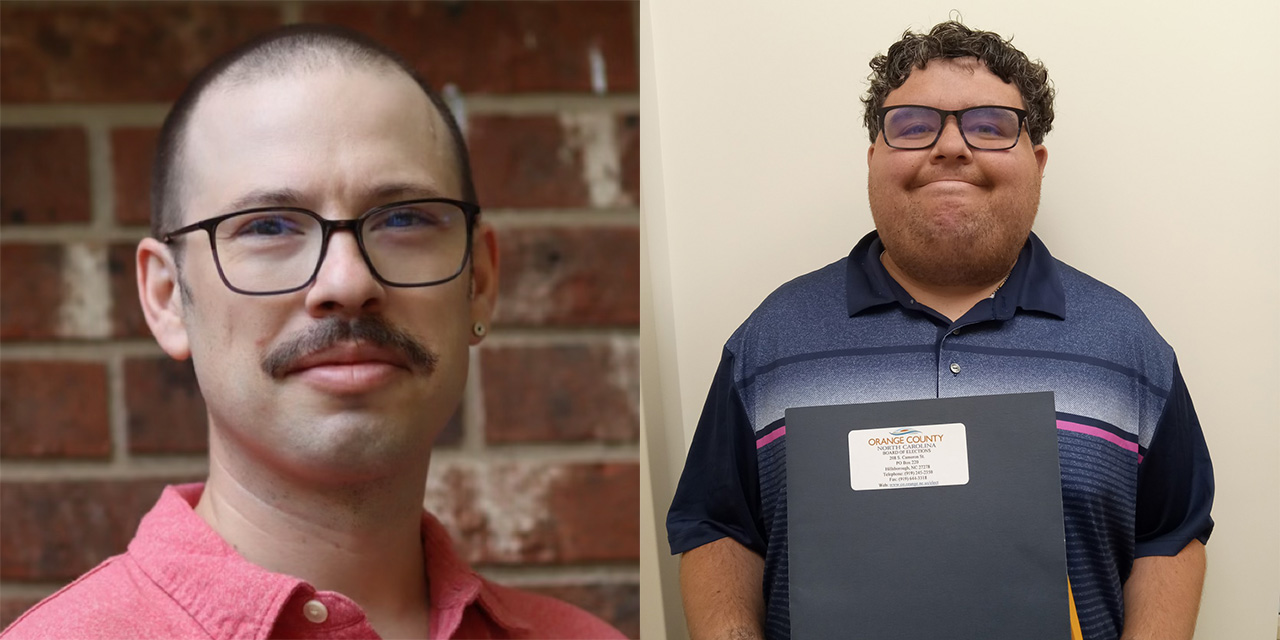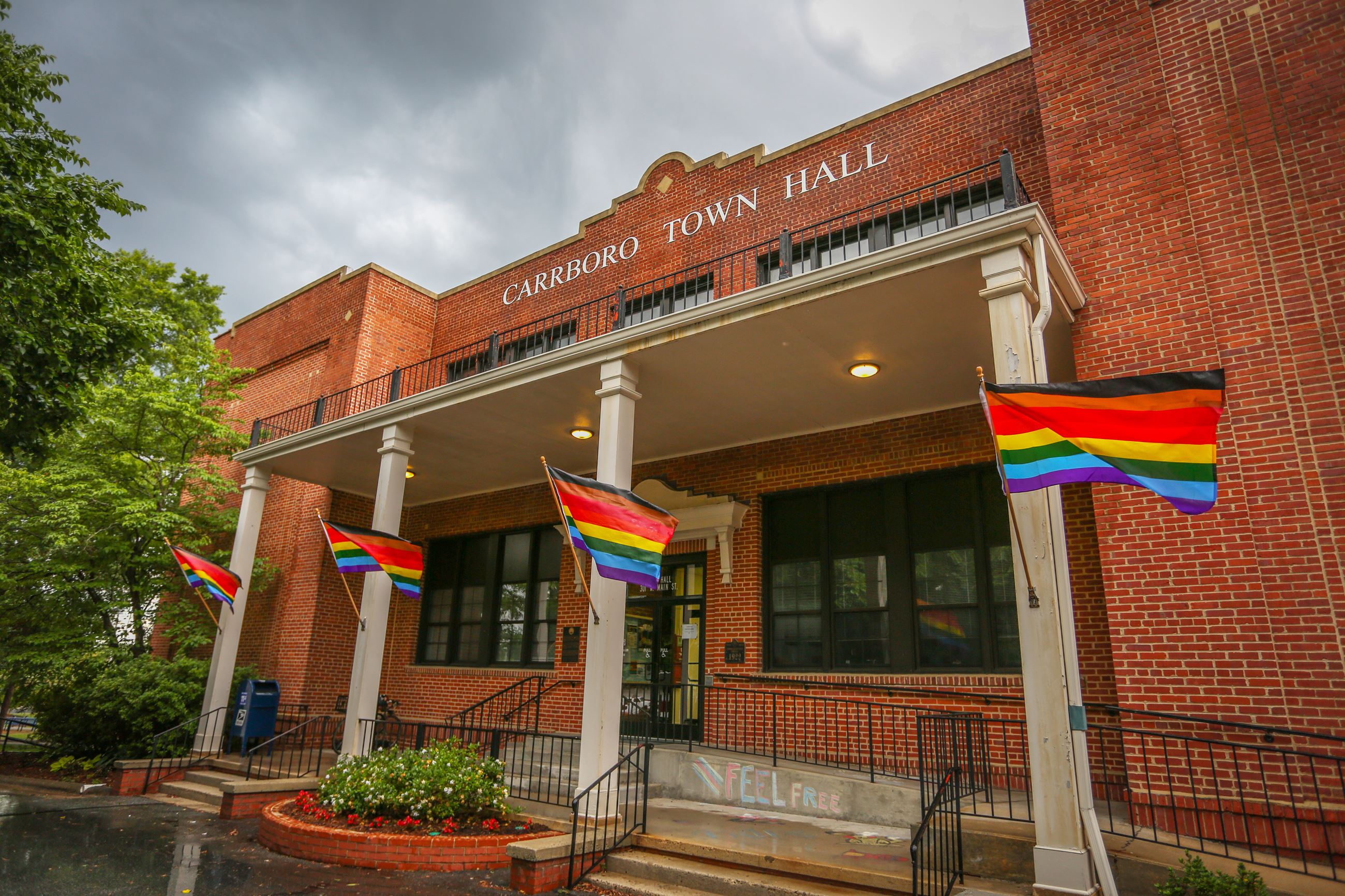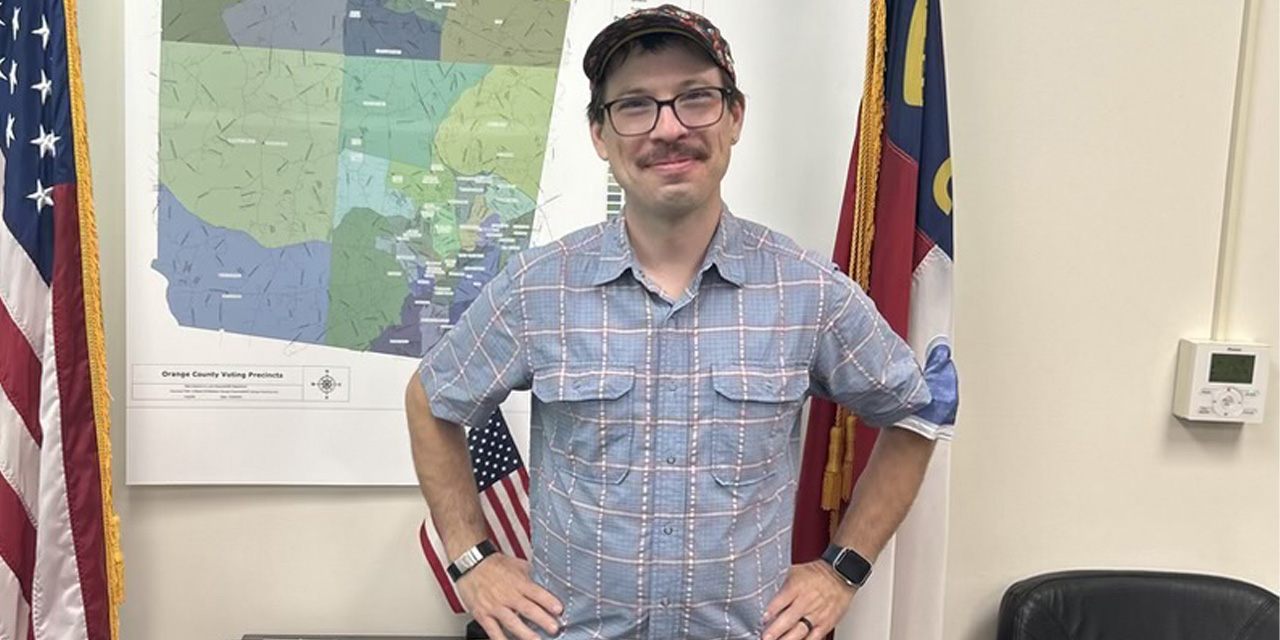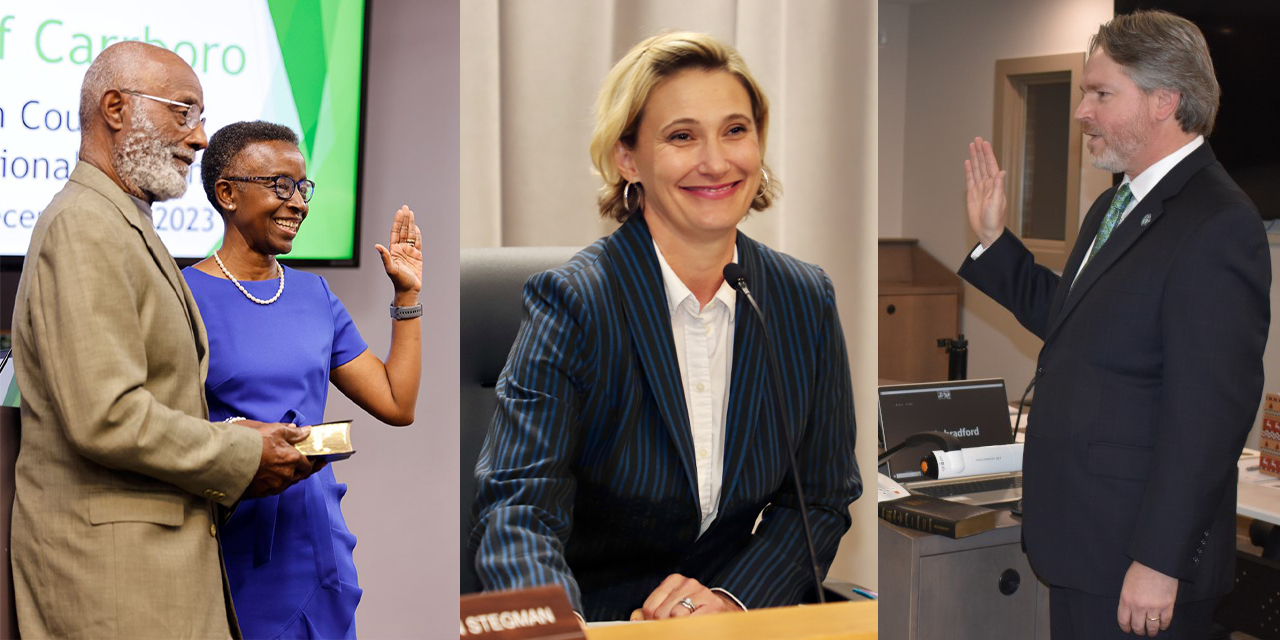The Town of Carrboro was the first of Orange County’s trio of municipal governments to swear in its new mayor and town council members on Tuesday night.
Barbara Foushee was officially welcomed into the mayoral role by Damon Seils, who stepped down from position after two years. The event also meant the departures of Sammy Slade and Susan Romaine from the council, but the additions of Catherine Fray and Jason Merrill while Eliazar Posada was sworn in again after earning re-election.
The Carrboro Town Hall was packed with family, friends, and community leaders to see the swearing-in of Foushee, who ran unopposed this fall. After taking the oath administered by U.S. Rep. Valerie Foushee, the six-year council member ascended to Carrboro mayor – a title held by only one other person of color in the town’s history. Robert Drakeford served six years as mayor from 1977-1983 as the first Black man in the role, and Foushee said the “magnitude of this moment” was not lost on her as the first Black woman to hold the office. Her husband Braxton Foushee — who was Carrboro’s first Black elected official when he joined the town council in 1969 — was by her side for the ceremony.
In her opening remarks, Foushee pledged to lead with the strength of her moral compass, ability to listen, and commitment to serve those in the town’s community.
“I’m bold enough to know that we can do more together,” she said, “as we continue to make room at the table for everyone. I want the doors of the community to be wide open for all who want to work here, live here, and play here. This council will be about accountability, transparency, fairness and responsibility to the community that it serves – everyone realizes that these are our keys to good governance.”
Eliazar Posada’s swearing-in for his first full term advanced his own history, as he continues to be the first openly gay Latino elected official in the state. Meanwhile, first-time council member Catherine Fray also became the first non-binary person elected to office in North Carolina.
After taking the oath, Fray shared a story about falling in love with the people who make Carrboro’s community special – acknowledging they create its unique character while also challenging it to continue moving forward.
“It’s this beautiful tapestry of a town of all of us getting out, pulling in one direction, pushing in another, and working together to make Carrboro the strange little place it is,” said Fray.
Jason Merrill – the third member of the three-candidate slate from November’s elections – was also sworn in to begin his four-year term, like Posada and Fray.
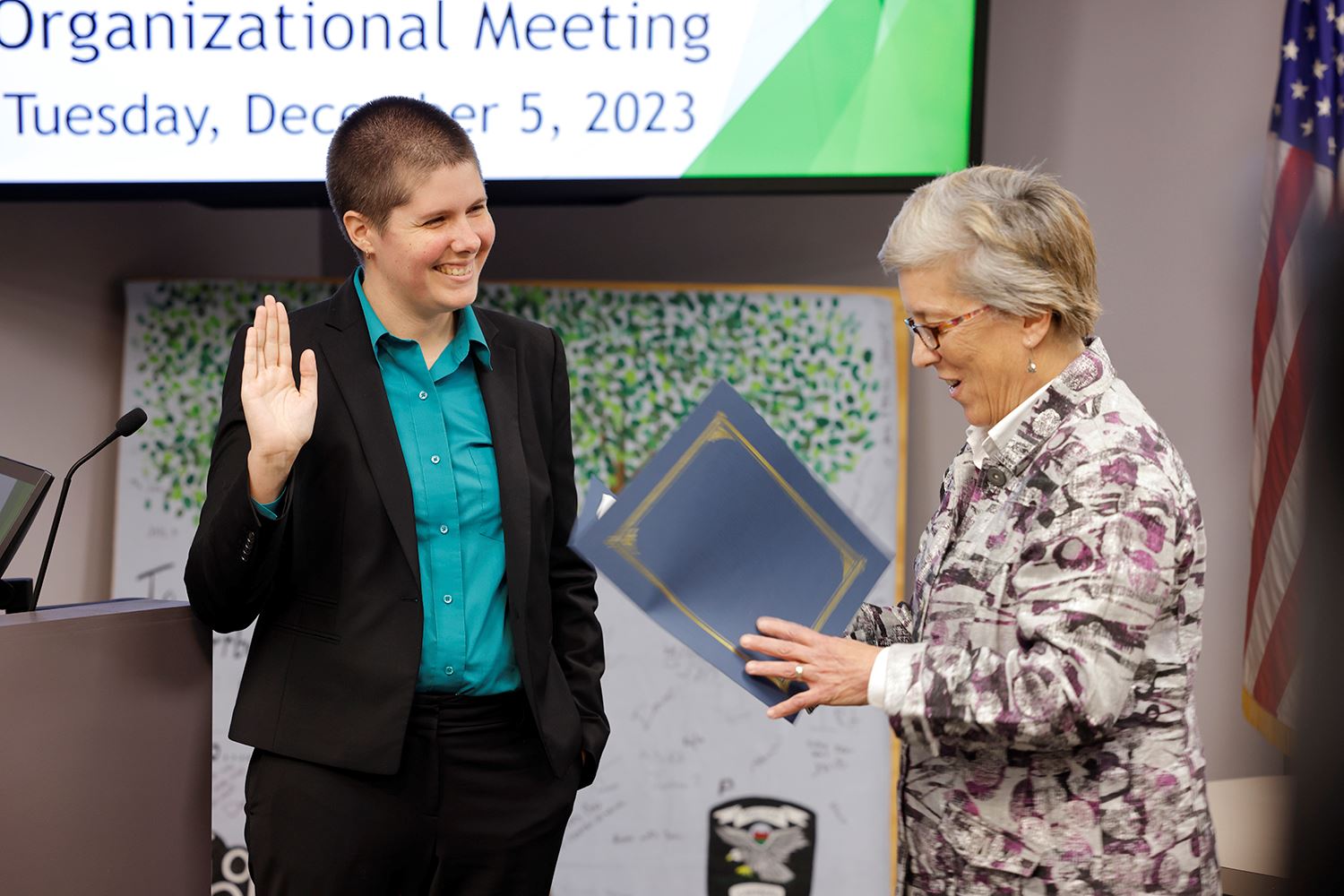
Catherine Fray (left) takes the oath of office for Carrboro Town Council, with former Carrboro Mayor Lydia Lavelle administering the oath. (Photo via the Town of Carrboro.)
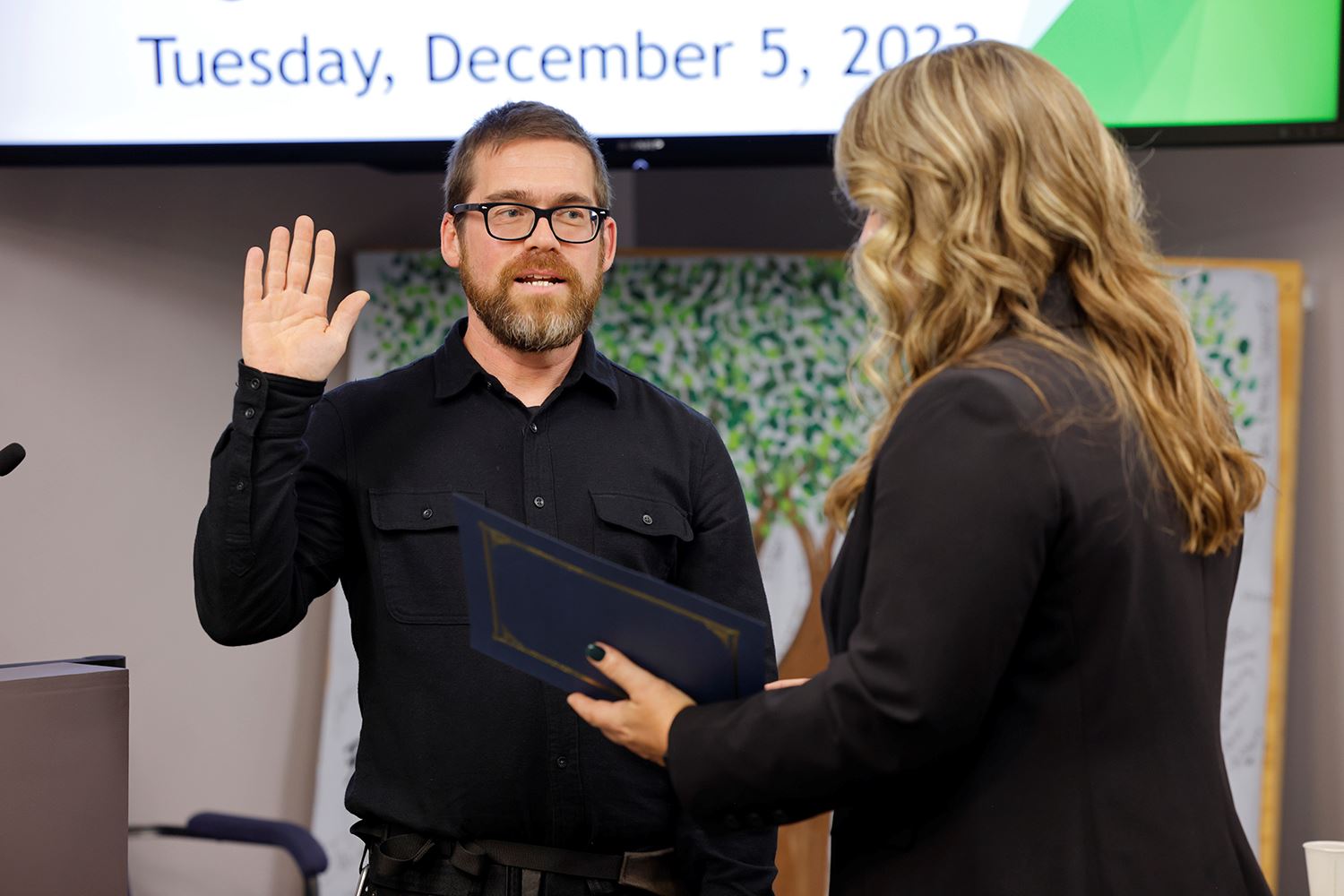
Jason Merrill is sworn into office by by Interim Town Clerk Wendy Welch. (Photo via the Town of Carrboro.)
With Foushee’s election, though, came a subsequent decision by the Carrboro council. Since Foushee was re-elected to her seat in 2021, two years remain in its term. According to Carrboro’s charter, the council members got to choose between holding a special election to fill the seat or appointing someone.
The group discussed the history of that choice – created after a pair of elections in 2005 and 2013 – and how Carrboro is one of three municipalities in the state who don’t exclusively appoint members to vacancies. On Tuesday, the council ultimately approved a special election to be held next November to fill the seat for one year, saying aligning it with the 2024 primaries would be too quick of a turnaround since the cycle now begins in March instead of May.
Council Member Danny Nowell, who was chosen to be mayor pro tem, motioned for the November special election. But he added he would like to revisit the town charter and its section allowing special elections, saying he does not believe they provide the most equitable outcome for residents. Nowell argued that because someone people have to run outside of typical town council cycles and again once the term is finished, it can create an unfair burden of time and resources.
“The thing that the special election doesn’t address is that we still have this seat which is going to have to run twice as much,” he said, “and that’s going to persistently be a bad policy outcome at any time. But given where we are in the community, with recent precedent – and the fact that we’re six [members] and this decision may well be better made as seven – I would like us to have a special election that gives us plenty of time to have that as equitably as possible. And then I would urge us to consider re-amending the town charter to make appointment the standard.”
Randee Haven-O’Donnell, who is the longest-serving Carrboro Town Council member, had just been elected to office when the acrimonious appointment process in 2006 led to the change of charter. They supported the special election for Foushee’s seat but pushed back against eventually changing the charter, saying it gives elected officials options – and best reflects the will of voters.
“There’s a lot more to this,” said Haven-O’Donnell. “It is enormously complex, especially when you take into account how sensitive we are at this moment, in this unprecedented history in our democracy, when we talk about asking the community to accept a council making a decision about a vote that they could have.”
The six-person council will now be on break until the new calendar year, reconvening on Tuesday, January 9. The full meeting from Tuesday can be watched on the Town of Carrboro’s YouTube channel.
Photo via the Town of Carrboro.
Chapelboro.com does not charge subscription fees, and you can directly support our efforts in local journalism here. Want more of what you see on Chapelboro? Let us bring free local news and community information to you by signing up for our biweekly newsletter.

